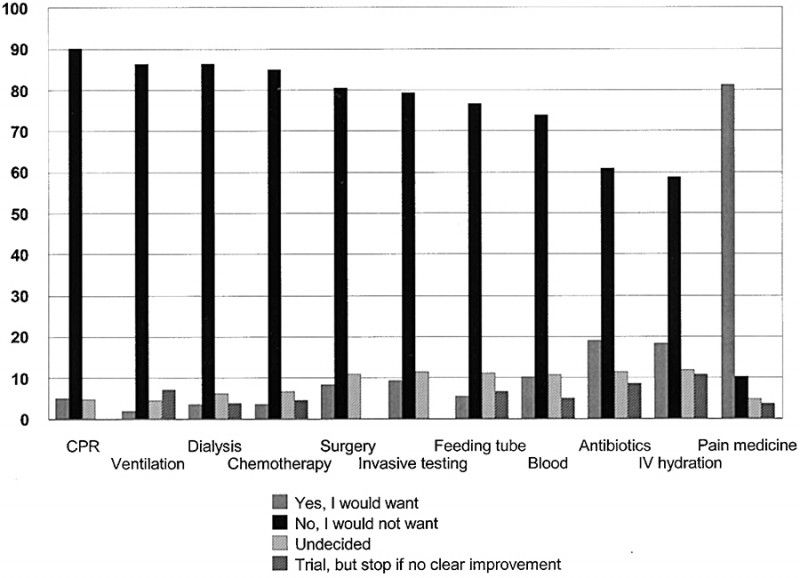How Doctors Die, Redux
What do doctors know about dying that we don't?

We brought you a story via BoingBoing that asked if doctors die differently than the rest of us. (The answer, in a nutshell, was yes: doctors do die differently, often with much fewer end-of-life medical treatments.) The question raises lots of issues—specifically, what do doctors know about dying that we don't?
Radiolab, the brilliant, curious, insightful radio show and podcast produced by WNYC in New York, talked to Dr. Ken Murray (who we spoke about in our previous post on this topic). Dr. Murray lays out the reasons why doctors overwhelmingly choose NOT to be resuscitated if their breathing or heart should stop, NOT to receive ventilation (machine breathing) or dialysis, NOT to receive surgery or invasive testing… in fact, why doctors overwhelmingly choose NOT to receive almost all life-support treatments at the end of life. One thing the doctors in the study overwhelmingly DO want? Pain management.

The piece offers insight into the treatments doctors want least, and why there's such a huge chasm between what doctors want and what patients want. Looking that the effects that CPR has on terminally ill patients, the show cites evidence that CPR is ineffective as a means of restoring a patient to full health. The producer of the show looks at a study that examines the success rate of CPR on TV medical dramas ("ER," "Chicago Hope," "Rescue 911") versus the reality of the efficacy of CPR on terminal patients. On television, nearly 75% of patients who receive CPR have a full recovery; in real life, the number is closer to 8%.
Though there's not yet a full transcript of the piece available online yet, I'd encourage you to take 20 minutes to listen to the podcast here. Whatever end-of-life medical decisions you choose, Radiolab offers an interesting perspective to consider. And be sure to check out the comments; there are lots of people who disagree with the piece, who have fascinating and worthwhile perspectives to offer, as well.
- Trusts Cheat SheetTrust us when we say this is as basic as we can make Trusts.Read more
- All You Need To Know About Advance DirectivesWhen you can’t make health decisions for yourself, this is the north star...Read more
- How To Create A Do Not Resuscitate Order (DNR)A DNR is a medical order that states you don't want cardiopulmonary...Read more
- How Organ Donation WorksIf the person who died was a registered organ donor, measures will be taken...Read more



